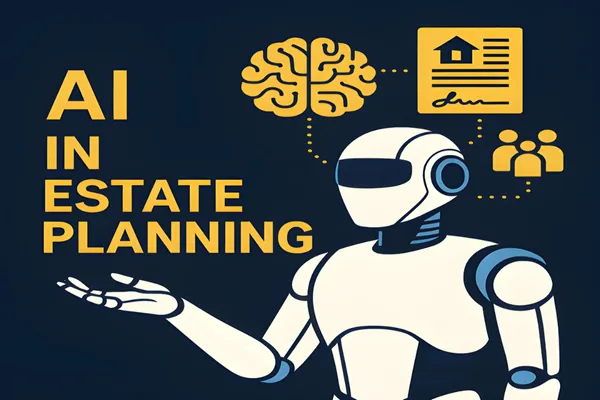
How AI Is Transforming Estate Planning
The Rise of AI in Estate Planning
Artificial Intelligence is no longer just for big tech companies—it’s making its way into the legal and financial world, including estate planning. From drafting documents to predicting tax implications, AI is helping families secure their legacies faster and more efficiently.
1. Faster Document Creation
AI tools can quickly generate wills, trusts, and other estate planning documents, reducing the time (and cost) spent on manual drafting. This allows families to get customized documents tailored to their needs without unnecessary delays.
2. Error Reduction
Traditional estate planning can be complex, with opportunities for mistakes. AI-powered systems analyze data in real-time, ensuring fewer errors and making sure all legal requirements are met.
3. Smarter Financial Planning
AI can project future scenarios—like tax changes, inflation, or asset growth—to help you design a smarter estate plan. This gives families the foresight to protect their wealth for future generations.
4. Enhanced Accessibility
In the past, estate planning was seen as expensive and out of reach for many families. AI is lowering the barrier by offering affordable, easy-to-use tools that make estate planning more accessible to everyone.
5. Peace of Mind Through Automation
AI can automate reminders for updates, track important life events (like marriage or property purchase), and prompt you to adjust your plan as your life changes. This ensures your estate plan is always up to date.
Final Thoughts
AI is not replacing estate planning professionals—it’s enhancing their ability to serve families better. By combining expert guidance with AI-powered tools, estate planning becomes faster, more affordable, and more reliable than ever.